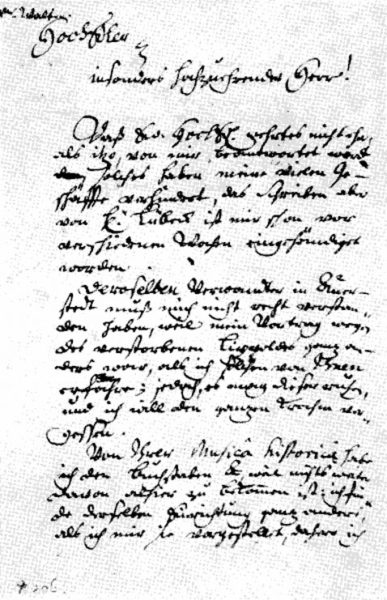
Georg Telemann was listed in the Guinness Book of World Records 1998 as the most prolific composer ever (at least in terms of surviving oeuvre). He also seems to have written with gusto about other topics, including himself! He wrote three separate autobiographies in 1718, 1729, and 1740, leaving behind a treasure-trove of information about himself, his friends, peers and the times.
Telemann had a life-long interest in poetry, and published books of poems as well as a satiric novel. But he never managed to write that big theoretical work. He took a stab at translating Fux’s 1725 Gradus ad Parnassum (a seminal textbook on counterpoint) from Latin and wrote his own book on composition and performance called The Practical Musician.
His love was for poetry, and opera- and cantata librettos. His poetry was published in the anthology Poetry of Lower Saxony and he wrote eulogy-poems for his beloved first wife, and best friends Johann Georg Pisendel and Johann Sebastian Bach.
On of Telemann’s masterpieces is the passion on Christ set after a poem by Barthold Heinrich Brockes (1680-1747) from 1716:
“Then I began work on a masterpiece, the Passion-Oratorio by Mr. B. H. Brockes, a council member in Hamburg, and also after that had been completed, his Vergnügen des Gehörs im Frühling (Pleasure of hearing in springtime), and finally upon his request a Wassermusik (Watermusic) after which Herbst (Fall) and Winter (Winter) followed.”
—Telemann autobiography of 1740
(Incidentally, the German Society of Philadelphia holds a volume with these poems in a publication from 1740 in their collection)
Late in life Telemann became a champion for the young poets of the day, such as Karl Wilhelm Ramler (1725-1798) and Friedrich Gottlieb Klopstock (1724-1803).
